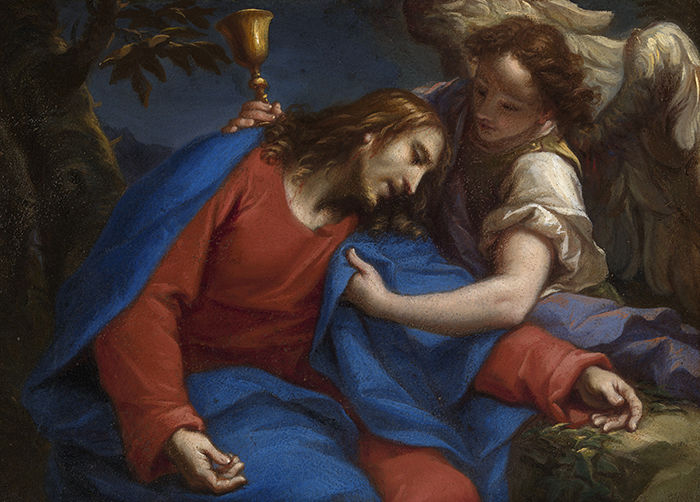Fausto Gomez OP
Some months ago, I finished reading a book I had wanted to read much earlier. I found a copy in the Library of the USJ Faculty of Religious Studies and Philosophy at the Seminary. The title of the latest translation (by Bruce W. Gillette): The Need and the Blessing of Prayer (1997). The whole book on prayer (101 pages) is inspiring and helpful. I was particularly attracted by The Prayer of Everyday (chapter 4), The Prayer of Consecration (chapter 6), and The Prayer of Decision (chapter 8). The chapter that moved me most: chapter 5 on the prayer of need – of petition.
Karl Rahner (1904 –1984), German and Jesuit is one of the outstanding theologians of the 20th century. Interesting story: the German theologian had a great devotion to Our Lady, and in particular to the Rosary. He was greatly impressed by old St Albert the Great, who near the end of his earthly life could do no more than pray the Hail Mary.
“I believe because I pray,” he says. Knowing him a little as an outstanding theologian, author of the monumental Theological Investigations, I was moved by his theological, spiritual and existential reflection on prayer. His reverence for God is admirable, and so is his humility: “If we are not supposed to cease praying, then perhaps one shouldn’t cease speaking about prayer, speaking about it as well and as poorly as it is given to one” – to him! Rahner’s main lines of reflection are God and the human person. God isthe Incomprehensible, the Merciful, the Holy God, One and Triune. He reminds us: “the Spirit is our helper in prayer.” Our prayer attitude ought to be childlike – like Jesus.’ “And this childlike Our Father – Abba Father, dear Father – is unspeakably much truer than all the metaphysics about God.”
The human person is weak and needs to struggle constantly against self-seeking and for self-forgetting. Rahner invites us to destroy self-centeredness every day: “in the everyday one can slowly die to oneself each day, without commotion and without rhetoric.” Little by little one realizes “that one becomes rich through giving, fulfilled through renunciation, joyous through sacrifice, loved through love of the other; then man will become selfless and thereby free.”
ON PRAYER OF PETITION
We pray to God and God remains silent. “We prayed and God did not answer. We cried and he remained mute. We wept tears that consumed our hearts…. We would have had endless material on file: the unanswered prayer for babies who starved to death, the misery of violated young women, of the exploited labor slaves, of those crushed by injustice, of the ‘liquidated’, of the cripples, of those dishonored.”
What could be the reason for God’s silence while seeing the miseries and injustices that surround the lives of his creatures?The Jesuit asks: “Why is this scoundrel successful and the just one the dunce, why does the same lighting fall on the good and sinners alike, why do the fathers sin and the children pay for it, why are lies so prevalent, why does injustice prosper so well, why is world history a single stream of stupidity, crudity, and brutality?”
And like Rahner, we ask the question: Why does God not intervene?The German’s words:“We implore to the Father, to his Son. No answer. The temptation to say that prayer is useless, that maybe God is somewhere else, or nowhere. Why does He not feel compassion for our miseries? Why does He remain silent?”
Rahner continues asking: “But, is He responsible for our sins? Often the cause of our miseries? What did I do with my freedom? Why involve God in my failures? Have you comprehended yet that God’s glory in this word is the cross of his Son? … Have you actually comprehended who God is and who you are? Comprehend that you are not able to comprehend his love and his mercy? … Can any of you say that you have not deserved ‘that’ … In the end one does not have anything against our dear God…Oh man, who are you to argue with God?”
What should we ask from God in the first place? To take away our cross? The Jesuit comments: “One does not beg God to avoid evil things, but the strength to bear them.” Then, “we want to pray and beg,” and ask with faith and hope. The answer to our petitions and questions is called Jesus Christ. “If Jesus Christ is the answer then his prayer of petition is our doctrine.” Remember his agony in the garden: “Let this cup pass from me” (Mt 26:29; Mk 14:36). “He begged the Father for his life. And his prayer was a prayer of confidence: ‘I know that you always hear me’ (Jn 11:42). His prayer was of unconditional submission: Not my will but yours be done.” The true prayer of petition is human as well as godly. Human: “let this cup pass me by.” And godly: “your will be done.” Christ, the God-man is the one and only law for both human/divine, and the only way to partly understand this mystery is “pray, beg, cry.”
We are all pilgrims on the way to the Father’s house: we are “wanderers between two worlds.” As wanderers on earth, we ask for what we need on this earth. As pilgrims to eternal life on this earth, we do not forget that we have to enter eternal life – “through downfall; and death” -, which is the goal of life and of prayer of petition. Temptation is an invitations to evil; in the deepest sense, “an invitation of divine love to pray”: “Whoever prays during temptation will conquer it.”
Let us always have “our hands folded, even in the most horrifying downfall,” thus “falling into the abyss of eternal love.”
(Image: The Agony in the Garden of Gethsemane (1740), Francesco Trevisani, Kelvingrove Art Gallery and Museum. From Wikimedia.)


 Follow
Follow


